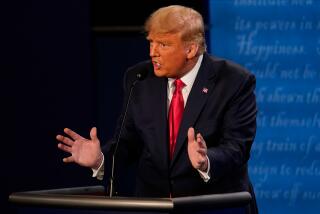Game maker’s use of real athletes not protected, court rules
- Share via
SAN FRANCISCO — A video game maker has no 1st Amendment right to use the likenesses of former college athletes without their permission or compensation, a federal appeals court ruled Wednesday.
Ruling on a lawsuit by former college football star Samuel Keller, a panel of the U.S. 9th Circuit Court of Appeals decided 2 to 1 that game maker Electronic Arts Inc. was not protected by free speech rights because the video games “literally re-created Keller in the very setting in which he had achieved renown.”
Keller, the starting quarterback for Arizona State University in 2005, transferred and played the 2007 season at the University of Nebraska. He was joined in the suit, intended as a class action, by other former National Collegiate Athletic Assn. football and basketball players depicted in video games.
The other athletes were Edward O’Bannon Jr. (UCLA), Byron Bishop (University of North Carolina), Michael Anderson (University of Memphis), Danny Wimprine (University of Memphis), Ishmael Thrower (Arizona State University), Craig Newsome (Arizona State University), Damien Rhodes (Syracuse University) and Samuel Jacobson (University of Minnesota).
The athletes contended that the game maker illegally appropriated their likenesses. In rejecting that contention, the court majority distinguished the case from those involving journalism.
“EA is not publishing or reporting factual data,” wrote Judge Jay S. Bybee, an appointee of former President George W. Bush. “EA’s video game is a means by which users can play their own virtual football games, not a means for obtaining information about real-world football games.”
In a dissent, Judge Sydney R. Thomas, a President Bill Clinton appointee, called the majority ruling “potentially dangerous.”
“The stakes are not small,” Thomas wrote. “The logical consequence of the majority view is that all realistic depictions of actual persons, no matter how incidental, are protected … regardless of the creative context. This logic jeopardizes the creative use of historic figures in motion pictures, books, and sound recordings.”
The majority ruling upheld a district judge’s refusal to dismiss the lawsuit as an attempt to chill free speech.
More to Read
Sign up for Essential California
The most important California stories and recommendations in your inbox every morning.
You may occasionally receive promotional content from the Los Angeles Times.











